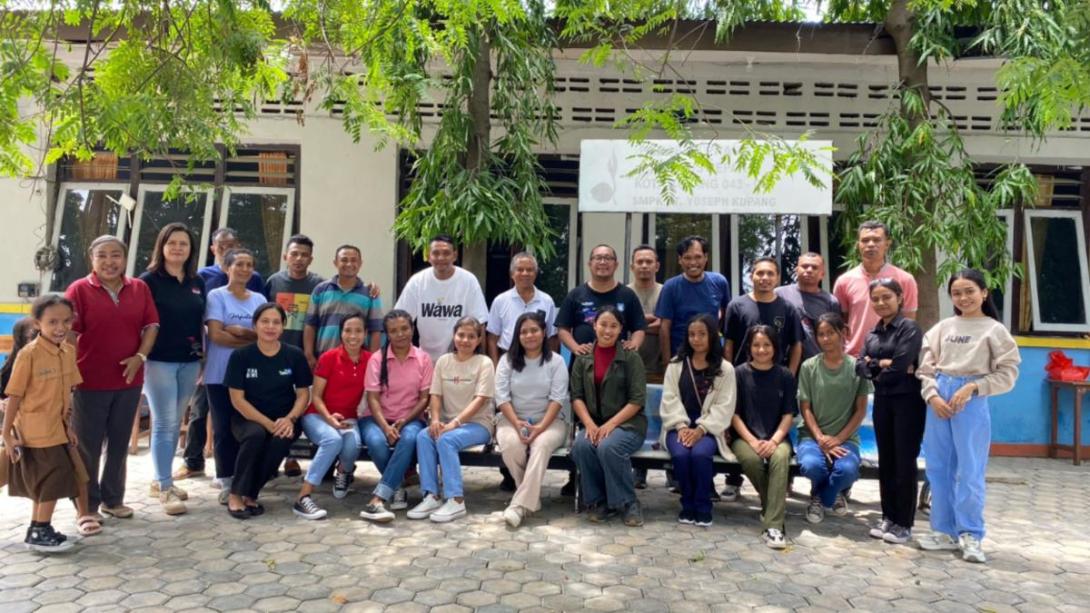
“I transformed myself from a victim to a survivor. I choose to be brave because I know that courage is contagious.”
The goal of the project is to co-design a prototype for students to prevent school dropout because of unplanned pregnancy and encourage appropriate continuing education for female students who are survivors of unplanned pregnancies
Main Objectives:
- Sex Education and Workshops for Students: The project provided sex education to over 600 students through interactive workshops and peer-led sessions to build knowledge on SRHR and prevent early pregnancy and sexual violence.
- Workshop for teachers: It trained 66 teachers to improve their understanding of SRHR and equip them to support students with safe, open, and informed discussions on sensitive topics.
- Campaign through media and social media: The project ran a campaign using social media, public storytelling, and media outreach to raise awareness and normalize conversations about sexuality and consent.
Linda’s project, titled “SAKOLA GENDER”, was a bold and transformative action aimed at addressing school dropout caused by unplanned pregnancies and the lack of comprehensive sexual and reproductive health education (SRHR) in Kupang, East Nusa Tenggara. Drawing from her personal journey as a survivor, Linda designed a two-phase project. In Phase 1, five survivors of unplanned pregnancy were helped to return to school. In Phase 2, the focus expanded to advocacy and prevention, emphasizing sex education for students, training for teachers, parent engagement, and community mobilization.
The initiative delivered workshops across schools, universities, churches, and indigenous communities, successfully engaging a diverse range of participants. Notable activities included a workshop for 66 primary school students, a public lecture attended by 100 female university students, a massive seminar involving 535 junior high students and 55 teachers, and outreach to marginalized groups such as children with disabilities and indigenous Helong women. Despite delays due to time constraints and the post-election political climate, Linda's team adapted flexibly, reaching more people than initially planned. Their approach combined education, advocacy, peer training, and healing spaces for survivors.

The project not only fulfilled its objectives but also sparked systemic shifts. A sexual violence prevention task force was initiated at Universitas Citra Bangsa, while SMPK St. Yoseph incorporated the program into their student organization's agenda. Five survivors from Phase 1 made significant life strides, with some pursuing higher education, employment, and healing. The project was recognized by Amnesty International, which supported further development of a pocketbook for SRHR education. Through this work, Linda positioned storytelling and resilience as powerful drivers of change, healing, and gender justice.

